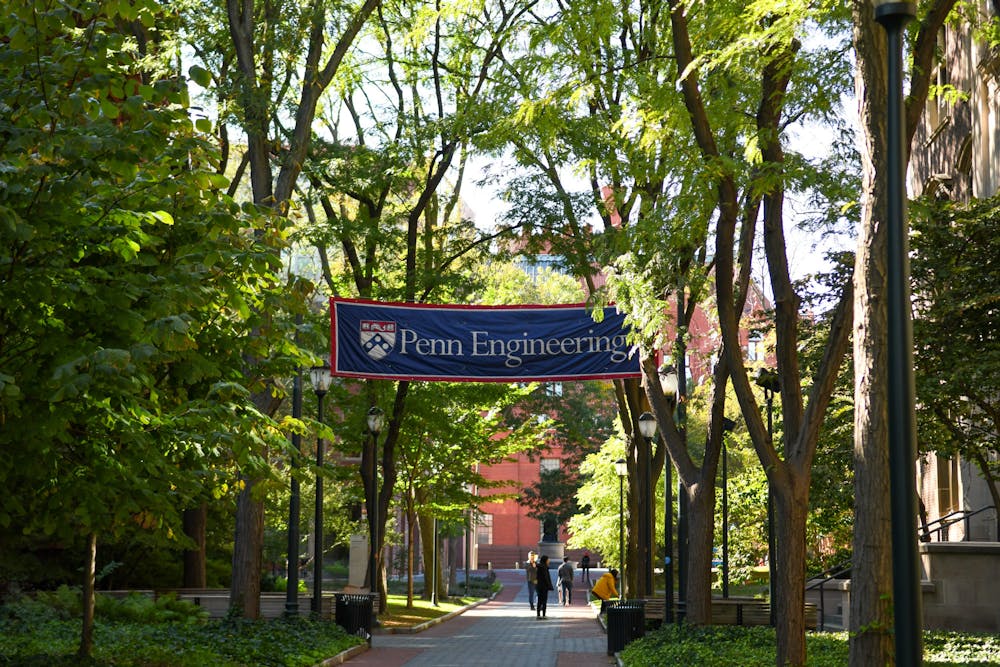
The School of Engineering and Applied Science now offers two new courses, Introduction to AI and Linear Algebra with Machine Learning Applications, as part of the artificial intelligence undergraduate major curriculum.
Credit: Izzy Crawford-EngTwo new courses have been introduced to the Artificial Intelligence major in Penn Engineering's undergraduate curriculum.
Since the AI major was introduced in fall 2024 — marking the first of its kind offered in the Ivy League — two courses, Introduction to AI and Linear Algebra with Machine Learning Applications, have been added to the curriculum. Courses in the major have seen positive student registration numbers, according to department faculty.
Computer and Information Science Professor Chris Callison-Burch taught an Introduction to AI course at the graduate level before redesigning the course for undergraduate students. When redesigning the course, he said he focused on questions about intelligence and language learning models, as well as understanding the role of calculus in robotics. The undergraduate course is also smaller than the graduate-level lecture, according to Callison-Burch, providing a more interactive environment.
Engineering sophomore Arush Arora — who is currently taking both of the new courses — told The Daily Pennsylvanian that he was impressed by a thought experiment conducted in class as a part of a broader humanistic approach to machine learning.
“That class gives me and the rest of the students a very insightful and humanistic outlook on AI, which students in the program desperately need because AI is rapidly evolving,” Arora said. “We are getting a more holistic and more enriching experience as undergraduates taking this class.”
Callison-Burch noted the "record turnaround time" in developing the major's curriculum, and said the opening of Amy Gutmann Hall made it feel "like all these stars are aligning."
Linear Algebra with Machine Learning Applications, taught by Professor Robert Ghrist, is at full capacity for the first time, following its initial run with a smaller group of students last semester.
Along with three undergraduate students and a PhD student, a custom ChatGPT bot trained on the materials of the class will serve as the fifth TA for the course. The bot is publicly available and begins its interactions with students by asking them about their majors and preferred methods of learning.
Professor Robert Ghrist said that because large language models are trained on a broader set of information, they are much better at supporting students from disciplines outside of the professor or TA’s discipline.
“[The bot is] much better than your typical TA, much better than your typical professor,” Ghrist said. “How many engineering professors would feel confident in explaining values in the context of PPE? I’d imagine not many.”
However, Ghrist observed that the education space is lagging behind in the use of generative AI.
“Every single person I know using generative AI in the education space is completely swamped and behind. We can't keep up with all the things that are coming out,” Ghrist said. "I'm very worried about professors just throwing up their hands and saying 'I can't keep up.'"
In the future, Ghrist noted the potential benefits of a collaborative ChatGPT platform for students and teachers, where professors can observe student chats. He emphasized the "huge efficiency boost" AI integration could bring to academic work.
"Ghrist has a knack for gleaning the very esoteric mathematical concepts and presenting them in a very consumable fashion to the average engineering student. It makes it feel like you're in a movie. His class really feels like one of those special artistic exhibitions where you are really immersed in the content," Arora said.
The Daily Pennsylvanian is an independent, student-run newspaper. Please consider making a donation to support the coverage that shapes the University. Your generosity ensures a future of strong journalism at Penn.
Donate



